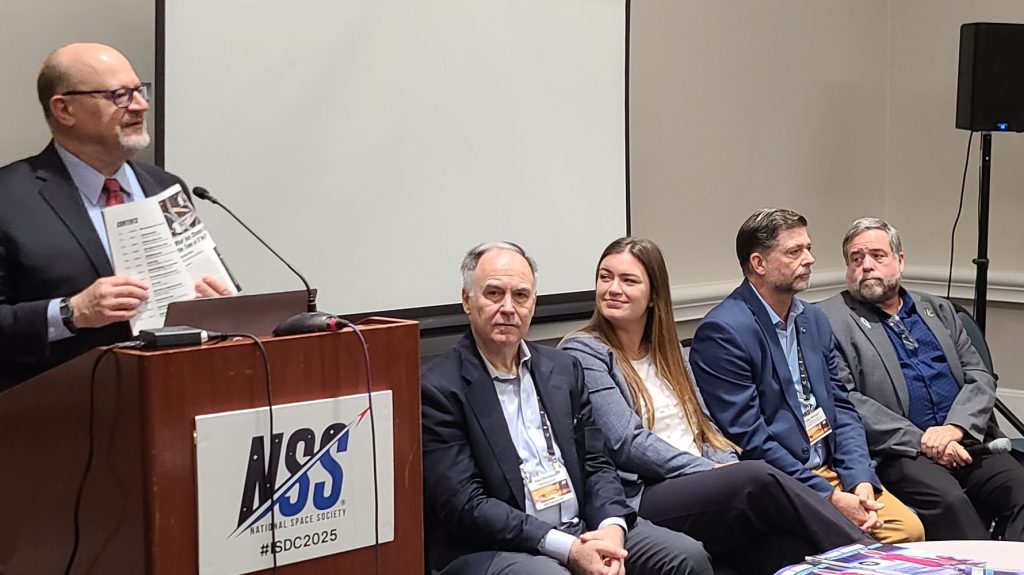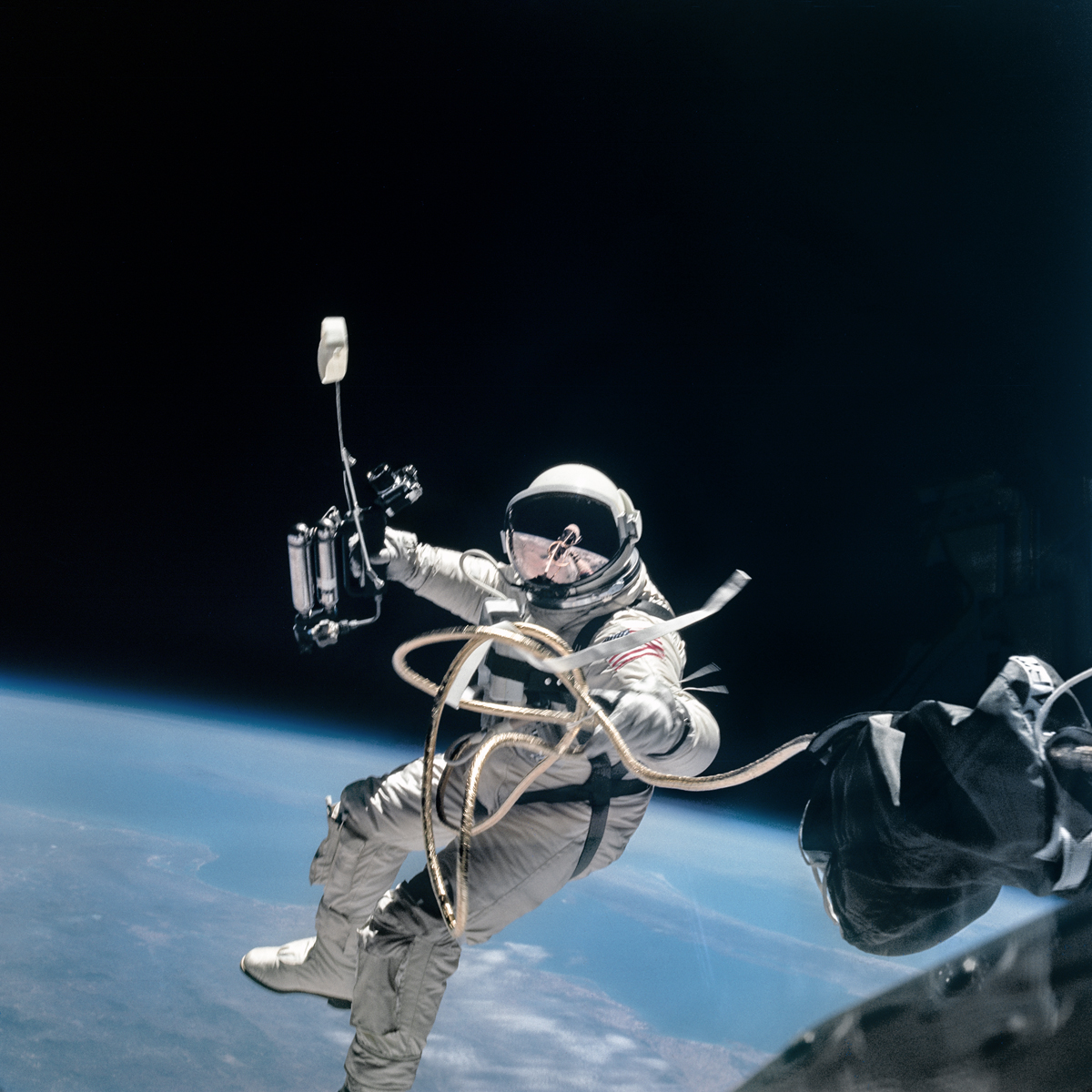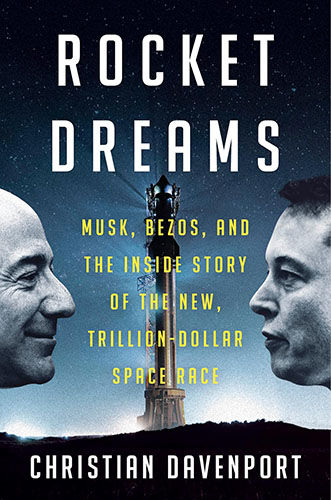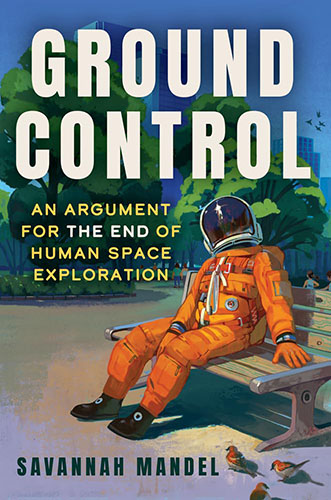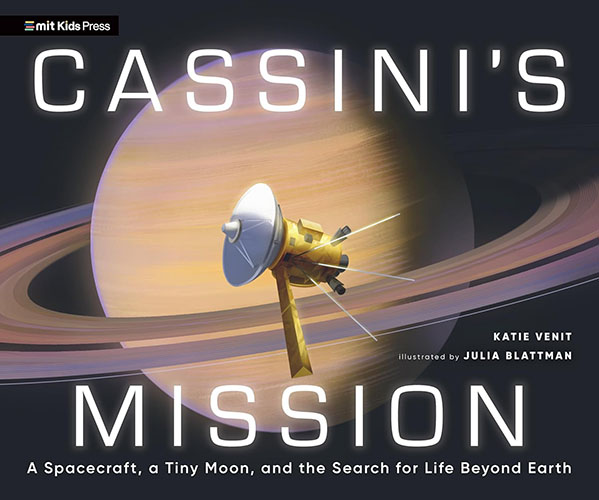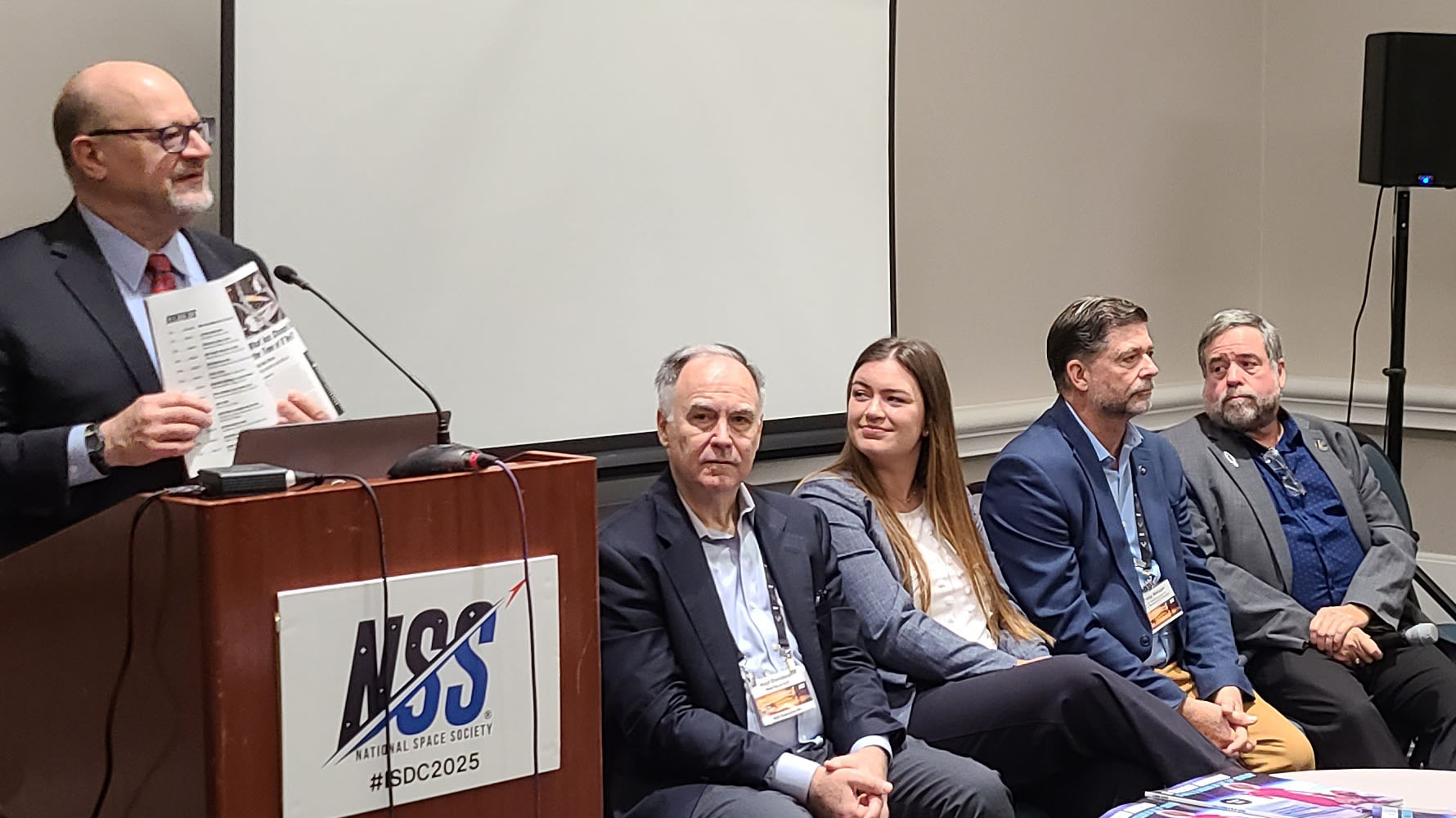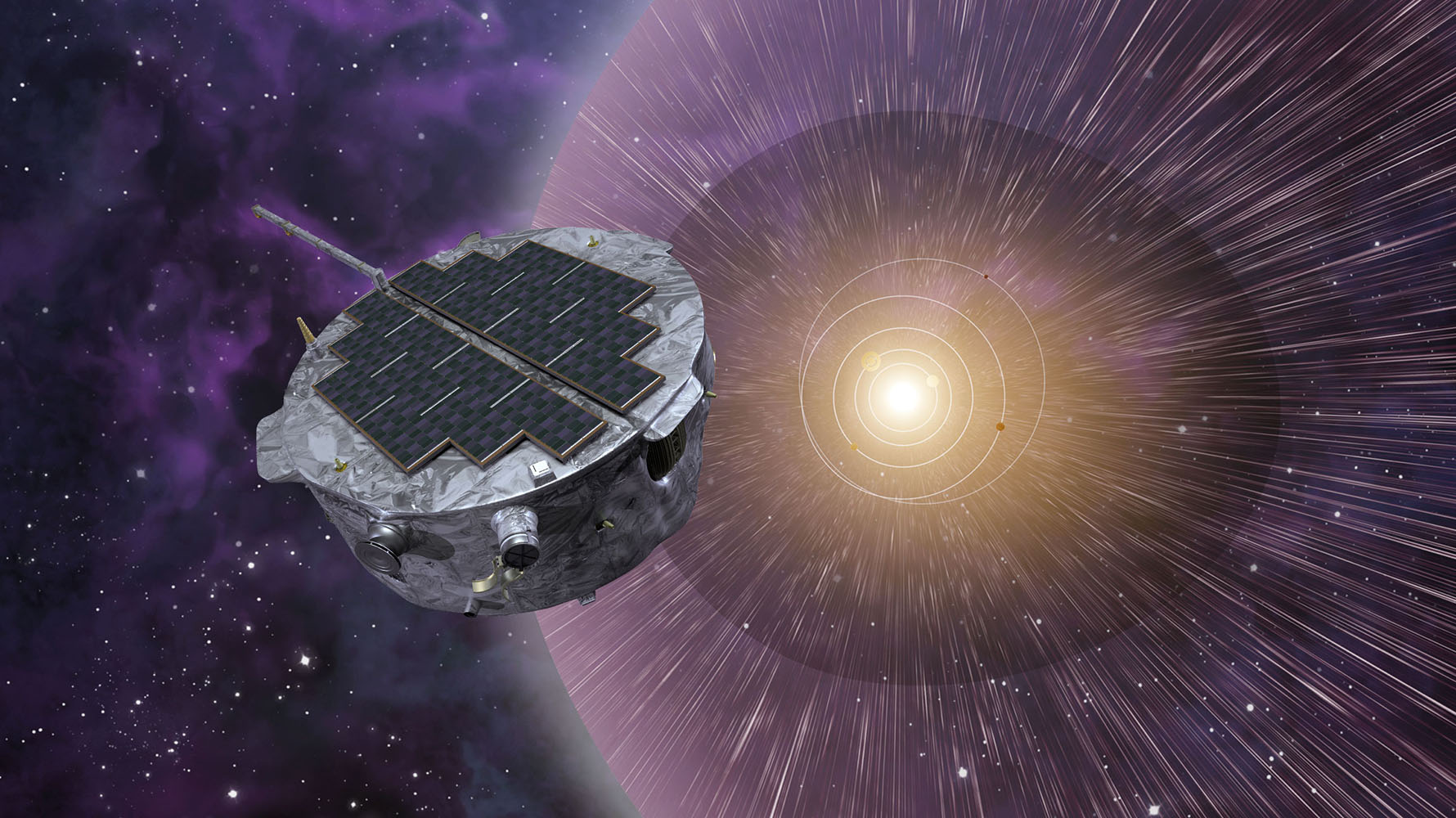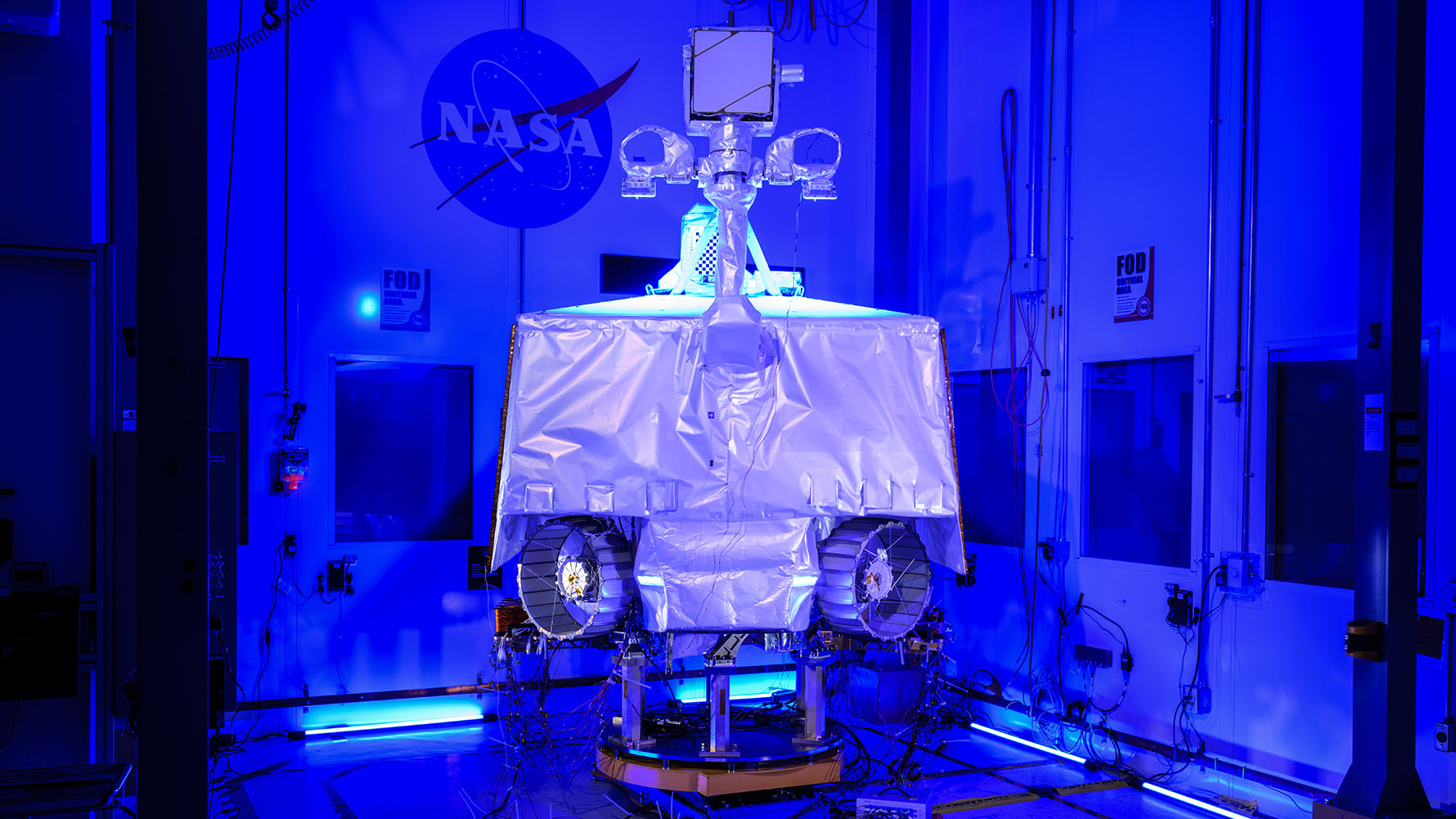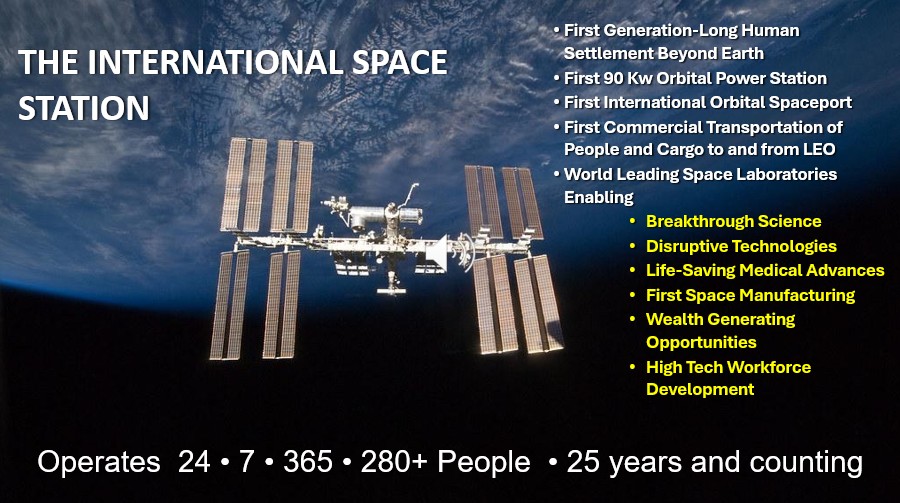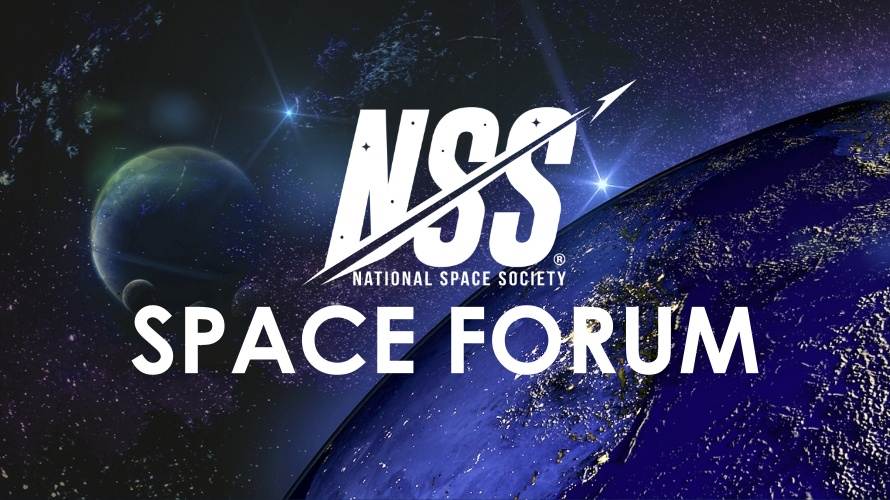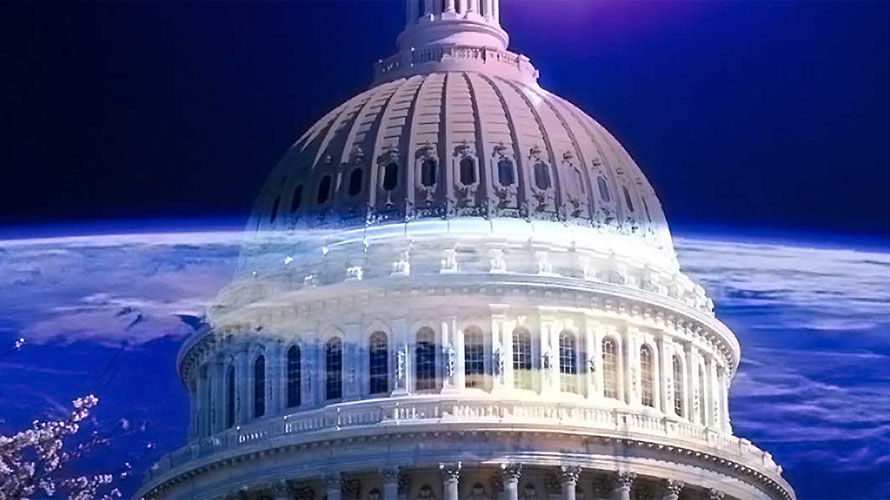By Bryce Meyer, Track Chair
Program arranged by NSS Space Settlement Advocacy Committee
Held Friday, June 20, 2025, Rosen Center, Orlando, Florida
Photos by Bryce Meyer
10:00 AM
Panel about new book: A Dream Renewed: O’Neill’s Vision in the 21st Century. Panelists pictured above from left to right: Moderator: Dale Skran (National Space Society), Hoyt Davidson (Near Earth LLC), Hannah Rens (Boeing Defense, Space & Security), Dr. Philip Metzger (Stephen W. Hawking Center for Microgravity Research and Education), and Rod Pyle (Ad Astra Magazine, National Space Society).
A panel discussion by the contributors for the NSS work A Dream Renewed, edited by Dale Skran and Rod Pyle, which lays out the core vision for long term space settlement. This panel was heavily attended, the room was too small, and the discussion was active. Dr. James Green (Senior Advisor NASA Headquarters) was a last-minute addition. This discussion referred to the book provided to attendees and copies were available during the entire track. The discussion ran over, so the next student presentation ran late.
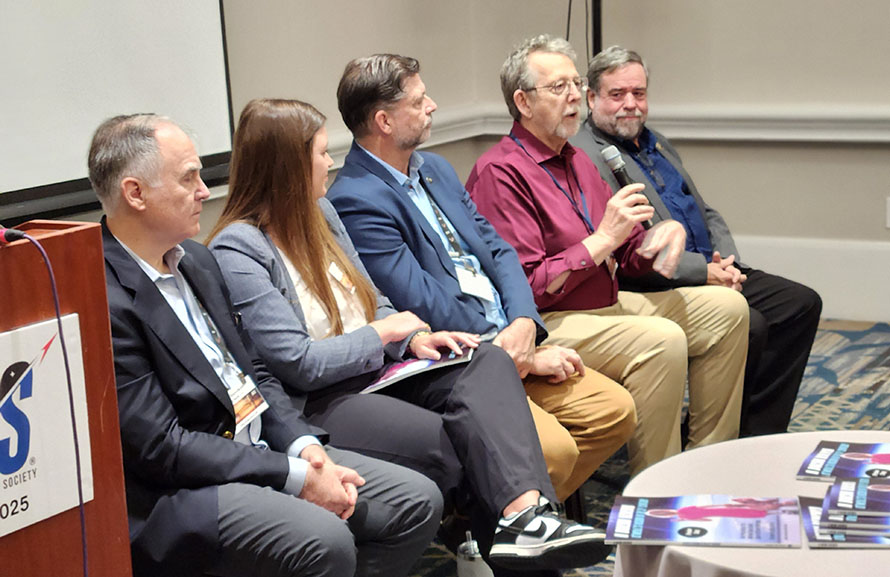
Dr. James Green (Senior Advisor NASA Headquarters) joins the panel and takes the mike.
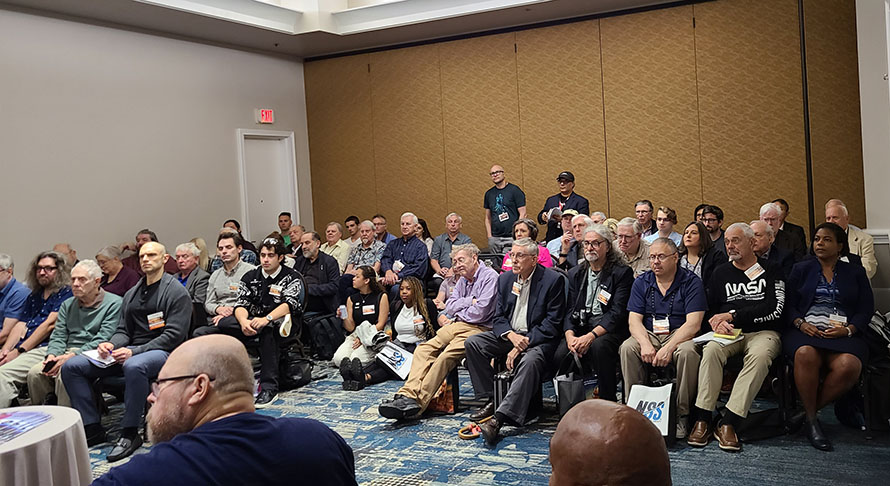 Room during “A Dream Renewed” panel.
Room during “A Dream Renewed” panel.
11:00 am
NSS Student Space Settlement Contest Presentation (Arkadia-10). Arkadia-10 was a First Prize winner for Grade 10 in the NSS Gerard K. O’Neill Space Settlement Contest for 2025. Students presenting were Radu Vlad-Alexandru, Unchiasu Victor-Alexandru, Lungu Razvan-Tudor, Turcan Eric-Octavian, and Serban Lara-Isabella from I.L. Caragiale National College, Bucharest, Romania. These students were a bit late because the first session ran over, and due to the confusion some people left and missed the following presentation.
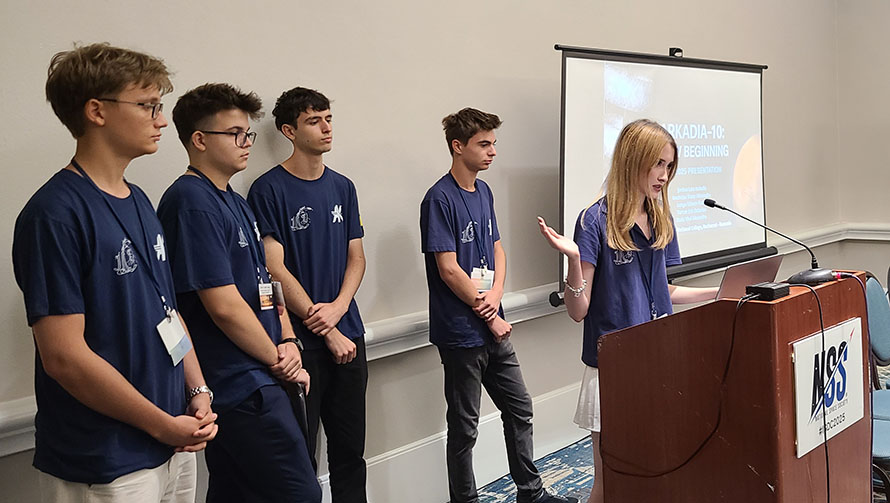 Romanian student presentation on their space settlement design Arkadia-10.
Romanian student presentation on their space settlement design Arkadia-10.
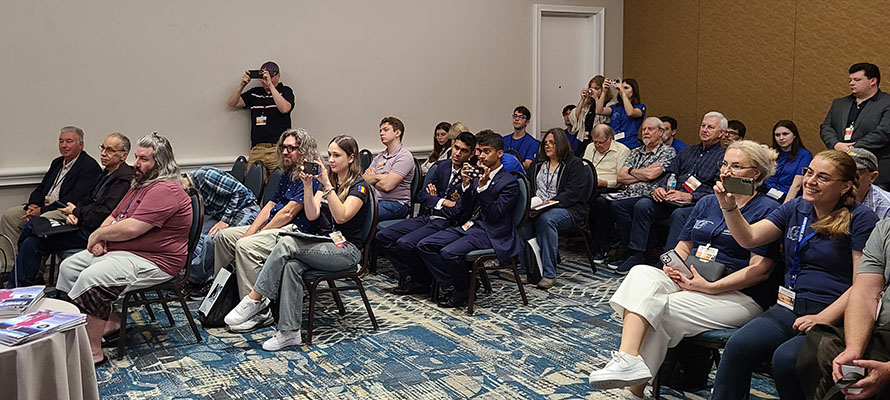 Audience for student presentation on Arkadia-10.
Audience for student presentation on Arkadia-10.
11:15 am
Repo in Space (“Interplanetary Finance and Secured Transactions: Autonomous, Automated and Remote Repossession of Assets in Outer Space”). Camisha L. Simmons (Simmons Legal PLLC).
Summary: Space is now commercialized. Space tourism has commenced. Mining in space to obtain rare-earth minerals on asteroids and the valuable resources on the Moon is on the horizon. Lenders and other investors provide the necessary funding for capital-intensive activities in outer space. They, accordingly, take security interests in the assets in outer space that the borrower owns or will own. These assets include satellites, equipment, machinery, and valuable minerals. The post-default exercise of creditor remedies with respect to assets in outer space is an untested area.
Camisha’s presentation was still very well attended even though student presentation caused some confusion, and her topic was a popular topic.
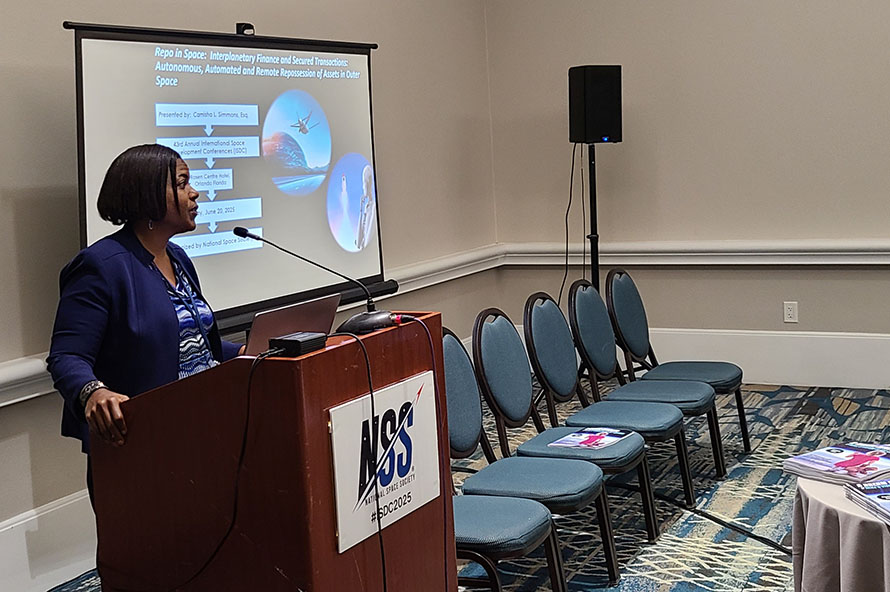 Repo in Space presentation by Camisha L. Simmons.
Repo in Space presentation by Camisha L. Simmons.
2:00 pm
Panel discussing the book A City on Mars: Can We Settle Space, Should We Settle Space, and Have We Really Thought This Through? Panelists pictured below from left to right are Moderator Dale Skran (National Space Society), Dr. James Green (Senior Advisor NASA Headquarters), and Dr. Philip Metzger (Stephen W. Hawking Center for Microgravity Research and Education).
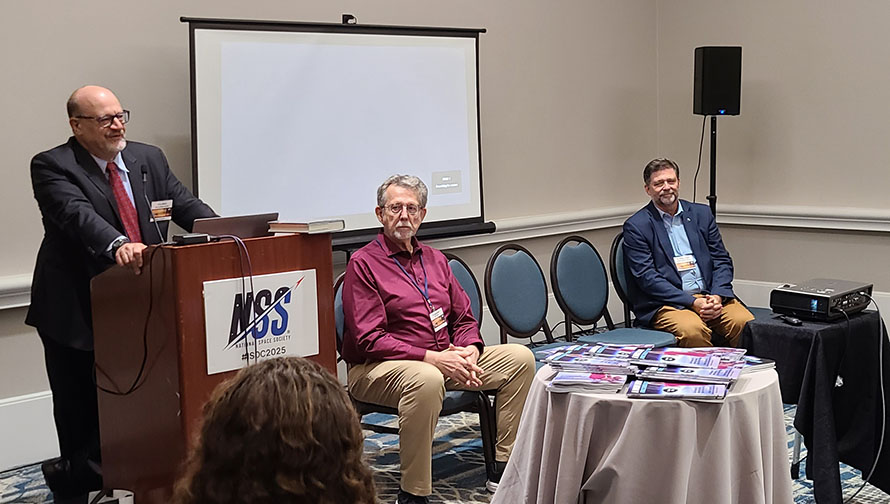
Summary: This panel discussed the good and bad points raised in the book (see Critique of “A City on Mars” and Other Writings Opposing Space Settlement by Dale Skran in the NSS Space Settlement Journal, December 2024, Issue #5). Like the prior panel, this was a popular topic and again packed the room.
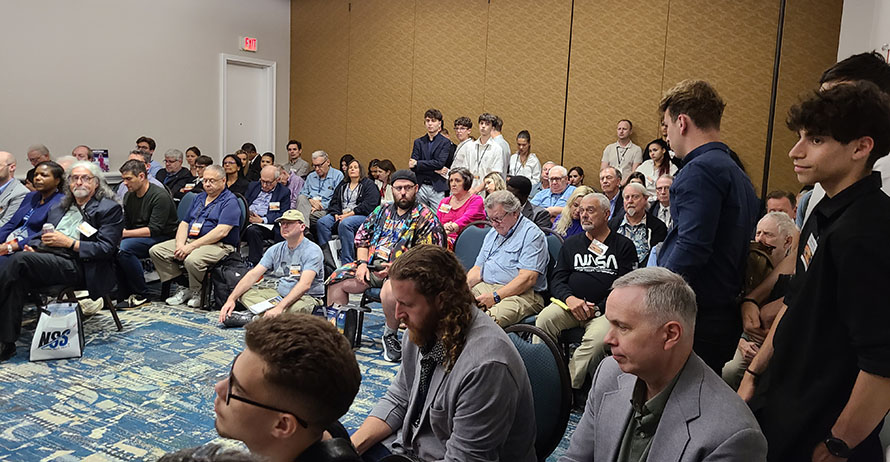 Audience for A City on Mars panel.
Audience for A City on Mars panel.
2:45 pm
NSS Student Space Settlement Contest Presentation Arora-2093
Arora-2093 was given First Prize for Grade 9 in the NSS Gerard K. O’Neill Space Settlement Contest for 2025. Four Romanian students represented the large group who worked on the design. The full group consisted of Dragomir Irena Mara, Serban Sofia Elena, Dinu Razvan, Dumitrescu Maria Bianca, Duagi Adem, Ilie Stefan, Mazilu Adelina Daria, Marinescu Teodora Catalina, Omer Khan-Resit, Rudencu Bianca Sofia, Tatulea Calin Mihai, and Zainea Rares Andrei of the Ovidus Liceul Teoretic, Constanta, Romania. This presentation was on time, and on schedule.
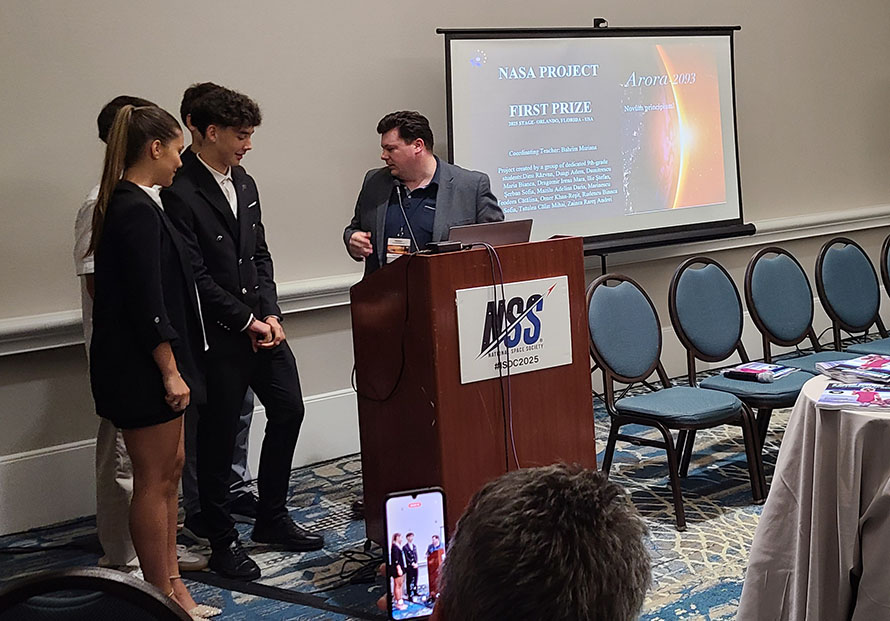 Romanian student presentation on space settlement design Arora-2093.
Romanian student presentation on space settlement design Arora-2093.
3:00 pm
Economic Modeling of Building a City on Mars. Dr. Philip Metzger (Stephen W. Hawking Center for Microgravity Research and Education)
Summary: Is it feasible to attempt building a city of 1 million people on Mars? Using data from U.S. agencies then modeling the buildup of a replica economy on Mars one sector or one industry at a time, the idea is to limit launch mass to Mars (and thus limit cost) by focusing first on the industry that has the highest ratio of product mass per capital mass. After that is built, then the Martians focus on the industry with the second highest ratio, etc., until a completely self-sustaining city has been established.
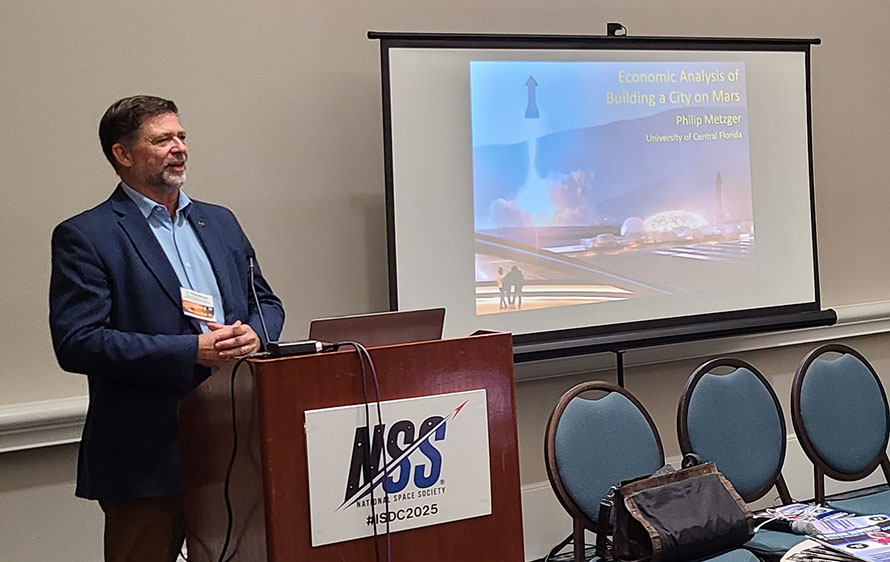 Dr. Philip Metzger presents on an Economic Model of a City on Mars.
Dr. Philip Metzger presents on an Economic Model of a City on Mars.
The next three panels were based on work from the Space Development Network topic areas for near term Moon (Mars) bases.
4:00 pm
Panel: Approaches to Feeding and Mass Recycling for a Small Settlement of 8-20 on the Moon or Mars. and Adam Williams (NSS Space Ambassador). Moderator: Bryce Meyer (St. Louis Space Frontier).
Summary: Several considerations are needed for small settlements that can then be expanded to larger settlements. How should a small settlement eat, recycle, and survive on a planetary location like the Moon or Mars?
5:00 pm
Standards for Space Shipping Containers and Space Logistics for Settlements. Bruce Mackenzie (National Space Society), Michael Laine (LiftPort Group) and Doug Plata (Space Development Network)
Summary: On Earth the Intermodal shipping container standard revolutionized logistics and transport of everything, everywhere. What are ideas for the same kind of standard for a ‘Space Container’ that is just as useful. This panel focused on creating the same logistics commonality and flow for space that the Intermodal container and infrastructure provides on Earth.
5:30 pm
Workshop: AI, Networks and Computers for Settlements. Chris Wolfe (Space Development Network) and Bruce Mackenzie (National Space Society). Moderator: Bryce Meyer (St. Louis Space Frontier)
Summary: Settlements will need many kinds of computing systems and networks to run, from basic life support, to running farms, to supporting businesses, and coordinating work for robots. What kinds of AI will make this possible? The last panel was a bit lighter in attendance, but still had a good showing, and AI is a popular topic. See full paper on this topic.
Overall Assessment:
- The Panels were a very big hit, and we will need a larger room for those sessions. We should also record these sessions.
- Panel and Presentation results should result in NSS Space Settlement Journal papers (for those not already in the Journal).

